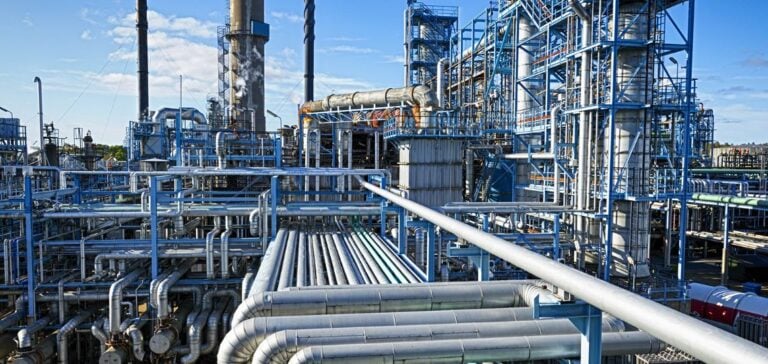Russian refineries are under increasing pressure due to squeezed margins and an unfavorable economic environment. The continuation of the gasoline export ban and the upcoming hikes in taxes and tariffs are exacerbating the situation, making domestic fuel production increasingly unprofitable.
After a significant decline in October, with crude processing reaching a two-year low at 5.14 million barrels per day (b/d), prospects for December remain bleak. Refineries face not only higher production costs but also a less favorable compensation mechanism designed to offset the difference between export and domestic market prices.
According to industry consultants, the production of 92 RON gasoline is barely profitable, while 95 RON gasoline production results in losses. Only diesel products continue to yield positive margins.
Rail delays and rising inventories
Rail delays are a major hurdle, preventing the timely delivery of refined products and causing excess inventories. This forces refineries to slow down production to avoid overcapacity in storage. These logistical issues are set to worsen with scheduled tariff increases: rail tariffs will rise by 13.8% in December, followed by adjustments in excise taxes in January.
Export-oriented sites, such as the Tuapse refinery on the Black Sea, have occasionally had to shut down operations due to economic reasons. Furthermore, this site was repeatedly targeted by Ukrainian drone strikes earlier this year, leading to significant repair costs.
Impact on modernization projects
High interest rates, set at 21% by the Central Bank of Russia in September, are also hindering refinery modernization projects. For instance, the small Ilsky refinery, which plans to launch a gasoline production complex in 2024, has requested state support to offset prohibitive borrowing costs.
Western sanctions limit access to the technologies necessary for upgrading facilities, resulting in delays in already initiated projects. According to Alexander Kotov, a consultant at NEFT Research, only advanced projects will be completed, but using company funds instead of borrowed capital.
Outlook for the industry
Despite current challenges, some analysts believe that fiscal adjustments or support measures could revive modernization programs beyond 2026. However, the immediate priority for refineries seems to be managing costs and preserving margins in an increasingly constrained economic and political environment.





















